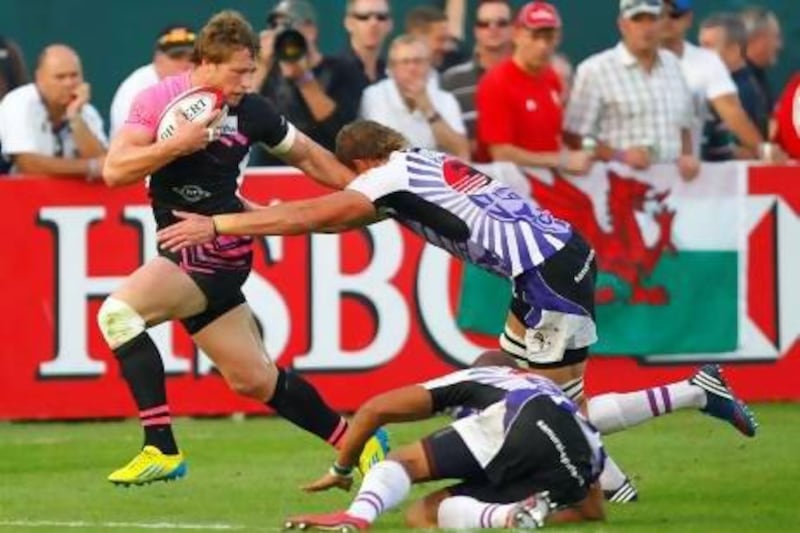Fast Track Middle East is a sports marketing agency based in Abu Dhabi. Clients include HSBC and Emirates Airline. Ben Faber, the director of communications, explains why sports sponsorship can benefit companies.
What does a sports marketing agency do?
We have three main divisions. We are a sports marketing consultancy so we advise local and international brands that have or want to have an involvement in sport. These tend to be sponsors so we advise them on the kind of partnerships they should get into and we negotiate those partnerships on their behalf. We are making those partnerships work in a marketing sense - so building and delivering marketing campaigns. The second part is an events business and, globally, we run everything from international televised sports events all the way down to much smaller brand activation such as making Emirates [Airline] an event platform in a mall to support their partnership with sport. Then we do communications - it could be for a tournament or a government body - and we help them promote whatever it is they are trying to promote.
How does business here differ from more mature markets such as the United Kingdom?
The scale is smaller in the Middle East. At the same time, it's probably much like anything else that's happening in this part of the world: there are huge ambitions for it. Governments across the Middle East have invested hugely in sport - sports tourism is enormous. So the likes of the Abu Dhabi Tourism Authority - and its equivalent in Qatar and Dubai - investing in the Abu Dhabi golf championship, the Mubadala tennis championship and the Abu Dhabi Grand Prix. Our clients are a broad mix of global and local brands and governing bodies … Sport has been really successful in putting Abu Dhabi, Qatar and Dubai on the world map.
Will business keep growing here?
This part of the world continues to invest heavily in sport. We opened an office in Qatar at the end of last year. Obviously there is the 2022 World Cup and that will be an extraordinary event for this part of the world. The UAE continues to be a growth market. The number of major sporting events that happen here is not going to decrease: there are four major international golf tournaments across Abu Dhabi and Dubai, three major tennis tournaments, the Grand Prix in Abu Dhabi. Our chairman [of Fast Track's parent company CMS] is Seb Coe, head of the organising committee for the London Olympics, and there is quite a lot of interest about when or if the UAE or Qatar or any other Gulf state will bid for the Olympic Games in the future.
How do your clients measure if sponsorship has been worthwhile?
Our clients get into sports marketing and sponsorship for completely different reasons. Take HSBC, their priority is to reward their customers as well as bringing new customers into the bank. At the Dubai Rugby Sevens, which HSBC sponsors, we create a big area called the HSBC Premier Suite which is an exclusive hospitality area for premier customers and every person is allowed to bring a guest who may or may not be a customer and every single one of them will leave their details and be contacted afterwards by the HSBC sales team. We get around 69 per cent of those non customers saying that the experience they had with HSBC at the Rugby Sevens made them think about starting banking with them. HSBC invests quite a lot of money in golf and rugby globally because they can see that specific return. Emirates has really invested in sport in a huge way around the world predominately to raise awareness of new flight routes.
A major gripe is that corporate seats are often left empty and deprive real fans of attending sporting events. Your response?
There has to be a balance struck between the reality of what commercial investment brings to sport … and corporates taking over an event and not using their allocation. I have no problem with sponsors who make an important investment into [a sporting event] to help improve it taking an allocation of corporate hospitality seats but at the point where no one shows up that's obviously a problem. The solution is if that happens, they lose their allocation.
Do you have to be a sports fan to do your job?
You have to be … You have to be able to understand how sports work from a business and sporting perspective. You can't advise your clients on which opportunities are best for them or which sportsmen might represent their brands best unless you have an understanding of the sport and the people who follow it.
What sports do you follow?
Most sports to be perfectly honest.





